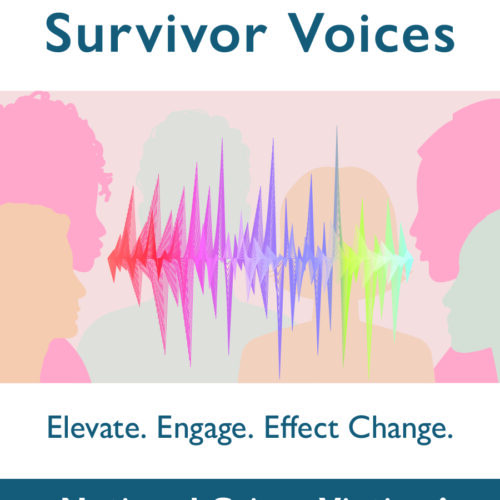
Experts Discuss Children’s Behavioral Health and the Juvenile Justice System
More than 500 researchers, evaluators, administrators, parents, and advocates came together at the 27th Annual Children’s Mental Health Research & Policy Conference, held in Tampa, Florida, on March 2–5 to discuss issues related to health, education, welfare, and juvenile justice. CSG Justice Center staff exhibited at the conference to highlight the work on the intersection of juvenile justice, school discipline, and behavioral health.
Suzanne Fields, Senior Advisor to the Administrator for Health Care Financing at the Substance Abuse and Mental Health Services Administration (SAMHSA), discussed current issues in children’s behavioral health in a plenary session. She provided updates on federal strategies and information on opportunities offered by the Affordable Care Act to increase access to behavioral health services for youth.
In a subsequent plenary session, Dr. Michael L. Dennis, Director of Chestnut Health Systems’ Global Appraisal of Individual Needs (GAIN) Coordinating Center, discussed the treatment gap that exists for adolescents and young adults who need treatment for co-occurring substance use and mental disorders, stressing the need for early identification and systems collaboration.
Representatives from the state of Maine also presented on effective joint collaboration between the mental health and juvenile justice fields. In 2012, the state received a SAMHSA grant to expand to juvenile justice facilities its trauma-informed care model, THRIVE.[1] This work included conducting surveys of youth, families, and staff through the Performance-based Standards (PbS) system. The surveys enabled Maine to assess the trauma-informed care being provided in the state’s juvenile justice facilities. PbS will be sharing Maine’s survey questions with all juvenile justice agencies, facilities, and residential care providers that use the PbS system.
In another presentation, representatives from the Connecticut School-Based Diversion Initiative (SBDI) discussed the linkage between unmet behavioral health needs and children who are arrested in schools. They outlined efforts to change policy, systems, and practices in middle and high schools with high arrest rates among students. In 2013, the SBDI released The SBDI Toolkit: A Community Resource for Reducing School-Based Arrests. This toolkit can be used by administrators to develop and implement policies that connect more youth with Connecticut’s local Emergency Mobile Psychiatric Services teams, at little or no cost to the schools.[2]
The SBDI Toolkit covers many issues and recommendations discussed in the CSG Justice Center’s July 2011 publication Breaking Schools’ Rules: A Statewide Study on How School Discipline Relates to Students’ Success and Juvenile Justice Involvement.
To learn more about the CSG Justice Center’s Juvenile Justice and School Discipline work, click here.
[1] Council of Juvenile Correctional Administrators. “Trauma-Informed Care Coming to PbS” Accessed March 14, 2014. http://cjca.net/index.php/blog/399-trauma-informed-care-coming-to-pbs.
[2] Child Health and Development Institute of Connecticut, Inc. “The SBDI Toolkit: A Community Resource for Reducing School-Based Arrests.” Accessed March 14, 2014. http://www.chdi.org/schooltoolkit
 This Giving Tuesday, Help Us Break the Cycle of Incarceration, Uphold Justice, and Offer Second Chances
Read More
This Giving Tuesday, Help Us Break the Cycle of Incarceration, Uphold Justice, and Offer Second Chances
Read More
 Vermont Executive Working Group Hears Recommendations on How to Improve Domestic Violence Responses
Read More
Vermont Executive Working Group Hears Recommendations on How to Improve Domestic Violence Responses
Read More
 Minnesota Department of Health Leads Cross-County Collaboration to Support Families Impacted by Incarceration
Minnesota Department of Health Leads Cross-County Collaboration to Support Families Impacted by Incarceration
s one of the first points of contact in the criminal justice…
Read More












